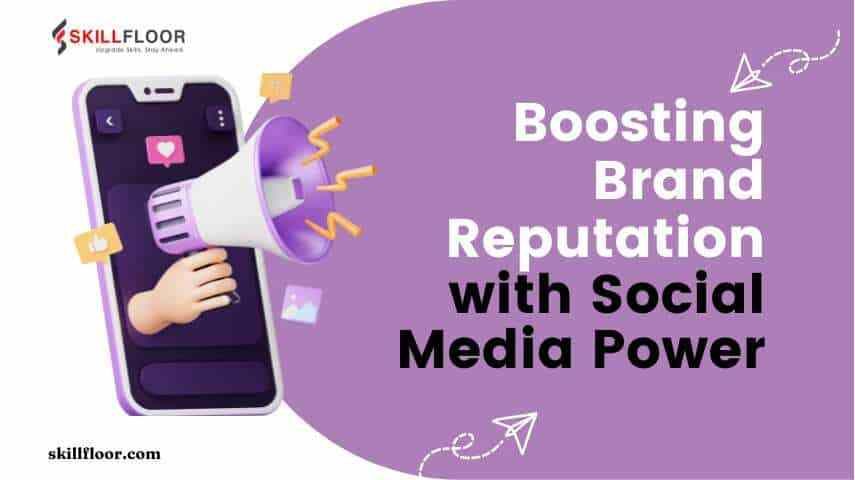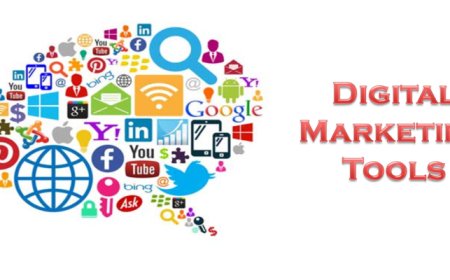The Impact of Social Media Marketing on Brand Reputation
Explore how social media marketing influences brand reputation, shaping public perception, enhancing engagement, and driving brand success.

As a social media marketing professional, I’ve seen firsthand the impact of social media marketing on a brand's reputation. When I started handling social media for small businesses, I noticed that even one careless post could trigger a wave of negative comments. On the other hand, an effective campaign has the power to take an organization from little-known to household name recognition. In the modern fast-paced, digital world, social media marketing is about more than just selling goods and services; it's also about developing relationships, encouraging trust, and influencing how people view your company. Let me share a few things from my experience and how this developing technology is transforming how people think of brand reputation in a variety of industries.
Consider Pepsi's 2017 advertising campaign with Kendall Jenner as an example. The commercial, which intended to convey a message of peace and unity, received a lot of criticism when it was first released. Many viewed the ad, which depicted Jenner giving a police officer a can of Pepsi during a protest, as simplifying serious social justice issues.
Social media users quickly and violently reacted against the brand, accusing it of being exploitative and tone-deaf. The negative impact of social media marketing prompted Pepsi to remove the advertisement and apologize in public. This incident is a great example of how, in today's digital world, a single misstep can quickly damage a brand's reputation. It highlights how important it is to effectively manage the impact of social media marketing to avoid these risks and protect brand reputation. This example underscores the necessity of sound digital marketing strategies that prioritize sensitivity and audience engagement.
The Dual-Edged Sword of Social Media Marketing
Brands nowadays act in a different environment because of social media marketing. On the one hand, it allows brands to engage their audience in innovative and engaging ways, which helps them build a strong, positive image. However, it also means that brands face more public reviews than they have ever been. This adds pressure to not only execute flawless social media advertising but also carefully manage online reputation management.
Take the quickness with which a brand's social media post can go viral, for example. When the content hits and resonates with viewers, going viral can be helpful; but, it can also be harmful if it causes controversy. In both scenarios, the impact of social media marketing on brand reputation is immediate and powerful.
How Social Media Builds Brand Reputation
Direct Engagement and Customer Relationships
-
53% of Customers Expect Quick Responses:
Over half of consumers expect brands to reply to their messages or comments on social media within an hour.
-
71% Want a Response in 24 Hours:
The majority of customers anticipate receiving a response in a day, highlighting the significance of prompt involvement.
-
90% Are More Likely to Buy from Responsive Brands:
People are more likely to make a purchase when companies rapidly answer their comments or concerns (HubSpot).
The use of digital marketing strategies focused on customer engagement plays a huge role in this aspect. For example, social media advertising that includes direct interaction builds trust and boosts brand loyalty.
Transparency and Authenticity
-
86% of Customers Value Authenticity:
Winning consumer support requires being true to yourself and honest.
-
Transparency is Wanted by 81% of Millennials and 79% of Gen Z:
Younger consumers like companies that use honest and transparent messaging.
-
94% Are More Loyal to Transparent Brands:
Customers show greater loyalty to companies that are honest and transparent about their policies and beliefs.
Online reputation management becomes critical here, as transparency and authenticity are key to developing long-term customer relationships. Brands that practice transparency in their content marketing efforts create more loyalty and trust with their audience.
Content Creation and Storytelling
-
80% Follow at Least One Brand on Social Media:
The majority of social media users follow brands they like, making it a key space for engagement.
-
54% Use Social Media for Product Research:
Over half of users look up products on social media before buying.
-
70% Feel More Connected When the CEO is Active on Social Media:
Consumers feel closer to a brand when its CEO shares content and stories online.
-
Storytelling Boosts ROI by Up to 13 Times:
Brands that tell good stories through their content can see a much higher return on investment.
Content marketing and storytelling go hand-in-hand in building a strong brand reputation. Effective storytelling can significantly enhance social media marketing efforts, improving ROI and brand perception.

The Challenges and Risks of Social Media Marketing
While the impact of social media marketing on brand reputation can have a positive effect on a brand, several challenges must also be considered. Brands must be aware of the following challenges:
-
Negative Feedback and Public Backlash
Social media has two drawbacks. It allows advertisers to interact with their audience, but it also opens the door to criticism. Negative feedback has a chance to go viral, particularly when a company makes a mistake with its marketing or behavior. A single offensive or tone-deaf tweet or post has the potential to cause a serious PR crisis.
-
Handling Customer Complaints in Public
Social networking is becoming used as a customer service platform as well. This can be advantageous since it enables brands to directly address issues, but it can also be harmful. A poorly managed unfavorable customer experience can seriously harm a brand's reputation if it is disclosed publicly. Brands need to respond respectfully, quickly, and efficiently to minimize any potential damage and maximize the positive influence of influencer marketing strategies as well.
-
The Risk of Misinterpretation
Posts on social media are usually short and clear, which may lead to misunderstandings. Even though it could seem like a harmless joke to the brand, the audience might find it uncomfortable or inappropriate. In these cases, the impact of social media marketing on brand reputation can be harmful. For brands to stay clear of any risks, their messaging has to be thoughtful and cautious. Effective digital marketing strategies can mitigate these risks by ensuring that brand messaging aligns with audience expectations.
Best Practices for Managing the Impact of Social Media Marketing on Brand Reputation
To maximize the positive impact of social media marketing on brand reputation, there are several best practices that brands should follow:

-
Consistency in Messaging
Being consistent is essential to developing a strong online reputation for your brand on social media. The impact of social media marketing is closely tied to this consistency. Brands must guarantee that their messaging aligns with their goals and basic principles on all channels. This means keeping consistency in the postings' tone, style, and content to ensure a positive impact on brand perception.
-
Proactive Reputation Management
It is insufficient to simply react to negative comments or crises as they arise. To manage their reputation and enhance the impact of social media marketing, brands must take the initiative. This entails keeping an eye on social media for any possible problems and taking action before they get out of hand. Creating a vibrant, devoted community involves engaging with followers and promoting positive interactions through sound online reputation management practices.
-
Leveraging Influencers and User-Generated Content
Collaborating with influencers and encouraging user-generated content is another strategy to improve brand reputation. Positive brand material posted by consumers or influencers serves as social proof, enhancing the brand's favorable image. Influencer marketing, when executed correctly, can significantly expand a brand’s reach and build credibility. Influencers who share a brand's values may help in promoting its message and increasing its audience, further strengthening the impact of social media marketing.
-
Timely and Thoughtful Responses
Maintaining a positive brand reputation requires careful and quick responses to messages and comments. When a customer raises a complaint or offers good feedback, a brand's reputation can be greatly impacted by how it handles the situation. A well-timed response enhances the impact of social media marketing by showing attentiveness and commitment to the customer experience. Integrating this responsiveness into your digital marketing strategies can further strengthen your brand's public image.
Case Studies: Success and Failure in Social Media Marketing
Nike launched its bold "Dream Crazy" campaign in 2018 with former NFL player Colin Kaepernick, who opposed racial inequality by kneeling during the playing of the national anthem. The tagline, "Believe in something, even if it means sacrificing everything," caused a great deal of discussion.
Positive Impact of Social Media Marketing
Social media users responded well to the campaign, which went viral and won over younger audiences and social justice supporters. Soon after the campaign, Nike reported a 31% rise in online sales, which increased brand loyalty and led to widespread media coverage.
Negative Reaction
Not every response, however, was favorable. A few buyers burned Nike products as part of demonstrations and a boycott of the company. Nike's stock increased and hit a new high despite this.
Long-Term Impact
Nike's choice to back Kaepernick enhanced its reputation as a social change advocate and demonstrated how a well-executed, difficult social media campaign may improve sales and brand reputation when it is in line with corporate rules. This campaign remains an exemplary case of how influencer marketing, tied to a powerful social message, can have a lasting impact.
This case demonstrates how taking a stand on critical issues, even with risks, can lead to long-term brand success.
It is impossible to overestimate the impact social media marketing has on brand reputation. It provides brands with unmatched chances to interact with their audience, form bonds with them, and build trust. It does, however, also come with several challenges and risks. Brands can use social media marketing to improve their reputation and create long-term success by being careful with their messaging, connecting with their audience authentically, and giving insightful feedback. They also need to be on the lookout because a single mistake may quickly end years of hard work and favorable brand development. In today's fast-paced digital landscape, mastering the art of social media marketing requires balancing these potentials and hazards with effective digital marketing strategies.






























































